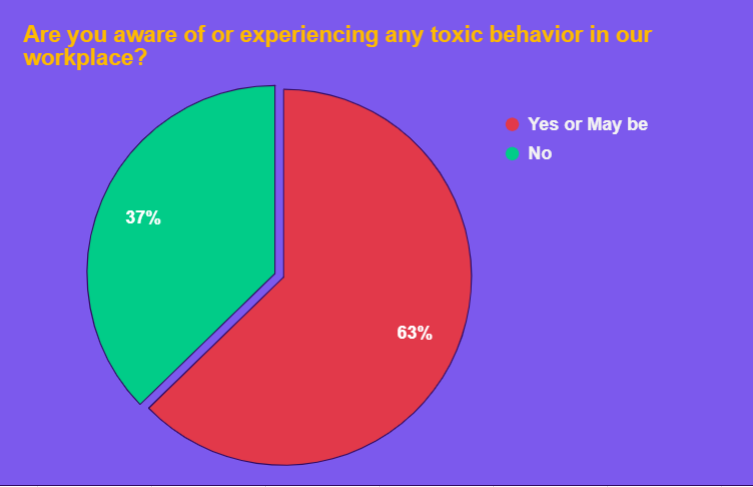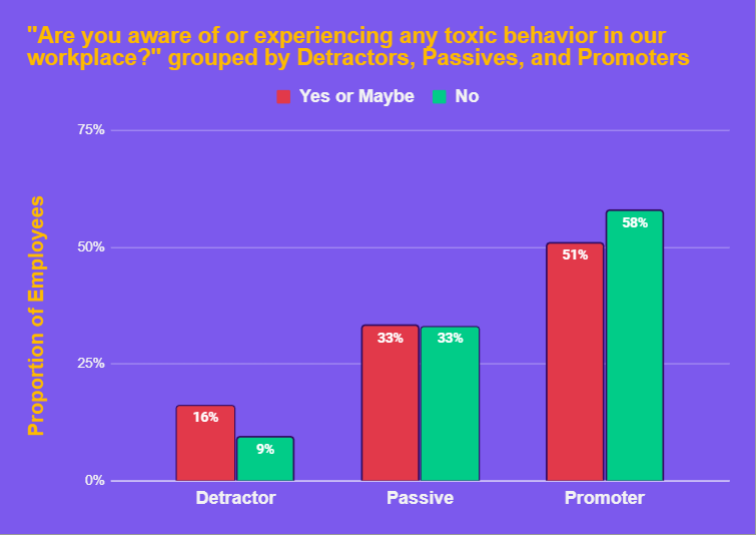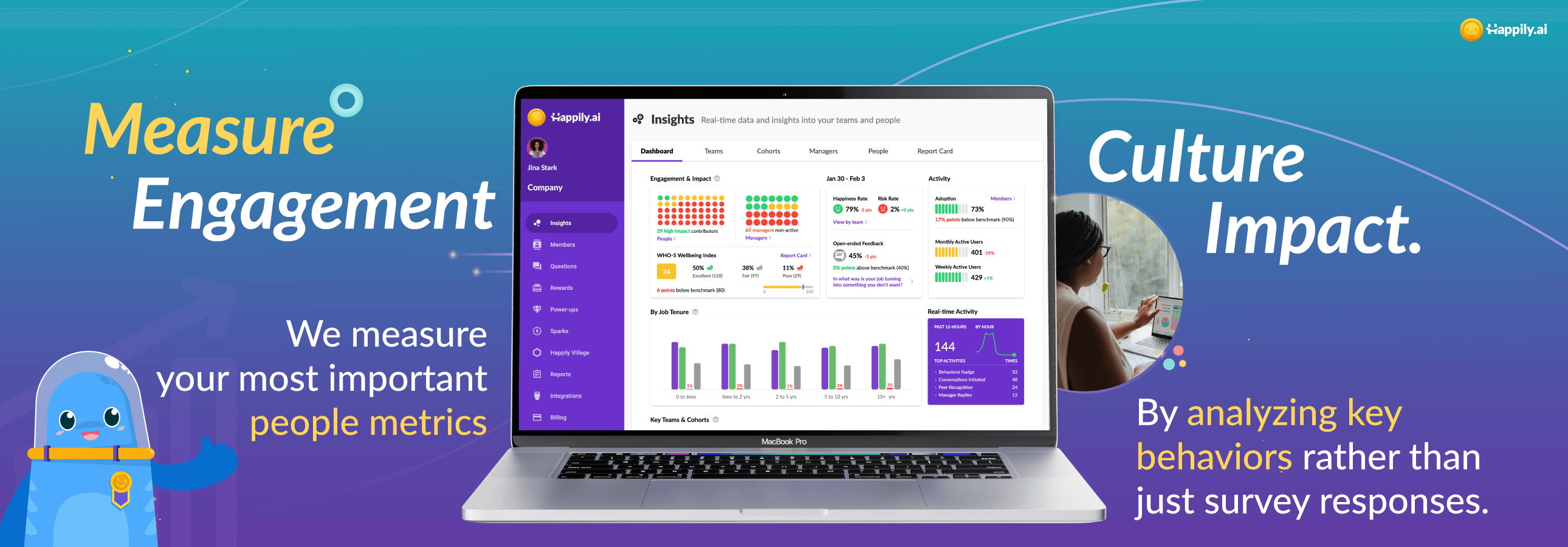Your company’s profile and branding are essential to attracting and retaining top talent. When employees are happy and satisfied with their job, they are more likely to stay loyal and advocate for the company. They will recommend their company as a great place to work. Word-of-mouth is an integral part of creating a positive company reputation, which has an impact beyond hiring.
The effect of toxic behaviors on employee satisfaction
In a recent study, we uncovered the negative impact of toxic behaviors on employee well-being. Subsequently, we seek to understand how toxic behaviors contribute to how employees perceive their workplace. Here, eNPS or employee Net Promoter Score is used as a measurement of employee satisfaction by studying responses to, “On a scale of 0 to 10, how likely would you recommend this company as a place to work?”. The eNPS score indicates the difference between the proportion of promoters and detractors in the workplace.
Satisfied employees, or promoters, recommend the company as a place to work to their family and friends. On the other hand, dissatisfied employees not only do not recommend their company but may act against the company’s reputation.
Our study, based on 953 employees across 40 companies, finds that employees who are unaware of or not experiencing toxic behavior in the workplace are 2x less likely to be detractors.


Note that the eNPS scaling considers three types of respondents regarding their responded scales as follows:
- Promoters are highly satisfied and likely to recommend their organization as a place to work. (score is 9 or 10)
- Passives are satisfied enough to be content but may not be engaged. (score is 7 or 8)
- Detractors are unlikely to recommend their organization, which may indicate some level of employee dissatisfaction. (score is below 7)
It's concerning that 63% of employees are or may be aware of or experiencing toxic behavior in the workplace. Only 9% of respondents unaware of/experiencing toxic behavior in their workplace are detractors. Meanwhile, 16% of respondents who are or may be aware of/experiencing toxic behavior in their workplace are detractors.
The eNPS score of the group of employees who are aware of or experiencing the toxic behaviors is 35, 14 points lower than that of those who are not (Explore the eNPS calculation here). Toxic behaviors clearly contribute to the number of detractors or dissatisfied employees.
Less toxic workplace experience, less dissatisfied employees
When leaders let toxic behaviors thrive in the workplace, there is a significant risk of cultivating detractors–employees who are dissatisfied and do not have loyalty to the organization. And detractors are contagious. Their words and actions can turn people around them to stand against the company with them. Company leaders can help reduce dissatisfied employees by being attentive and decisive against toxic behaviors. In our previous study, we provided three strategies to eliminate toxic behaviors in the workplace for leaders and managers.
Employee experience is an essential aspect of work life. Employee well-being and satisfaction are affected by toxic behaviors in their workplace. Happy and satisfied employees create a positive reputation for the company, the most effective method for retaining and attracting top talent. Moreover, satisfied employees will go the extra mile to support your company's success.
How we can help
A strong culture can help reduce toxic behaviors in the workplace. At Happily.ai, we can help companies reinforce core values and strengthen company culture through recognition, effective communication, and timely action. Learn more about how we use technology to build extraordinary workplaces here.

References
[1] https://www.futurelearn.com/info/blog/what-is-job-satisfaction










